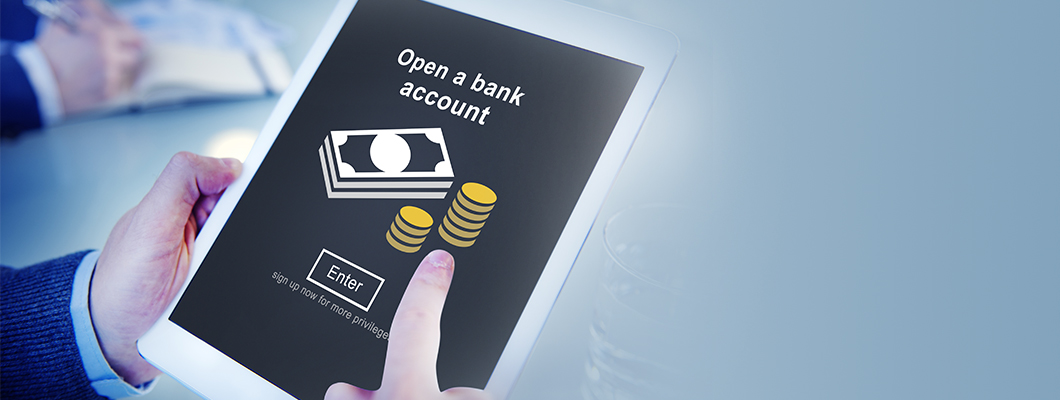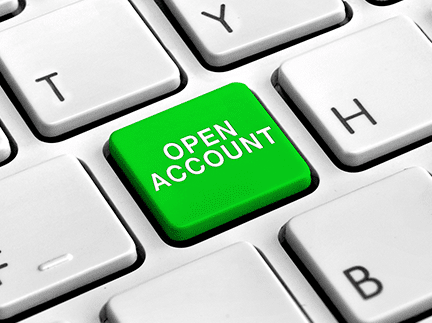How to Prepare for a Hassle-Free Bank Account Opening Experience
How to Prepare for a Hassle-Free Bank Account Opening Experience
Blog Article
Leading Tips for Opening a Savings Account: Make Sure Efficient and smooth Configuration
Opening up a checking account may appear uncomplicated, yet a methodical technique can significantly enhance the experience and established the stage for a successful financial partnership. By understanding the variety of account types readily available, collecting necessary documentation, and comparing banking organizations, one can stay clear of usual mistakes. Furthermore, taking into consideration the subtleties between online and conventional banking choices is critical. The most vital action often lies in thoroughly examining the problems and terms-- an aspect numerous neglect. What complies with can make all the difference in your banking experience and financial health.
Understand Different Account Kind
When opening a checking account, it is important to familiarize yourself with the different account kinds readily available. Understanding these alternatives will enable you to choose an account that best fits your financial needs and goals.

Cost savings accounts, on the other hand, are developed for saving money and generally provide higher rates of interest than examining accounts. They may have withdrawal limitations, urging you to conserve with time. For people seeking a greater yield on their savings, CDs offer set rate of interest for a specified term, but they need you to secure your funds up until maturity.
Additionally, there are specialized accounts like cash market accounts and pension, each with distinct features and advantages. By thoroughly comprehending these account types, you can make enlightened choices that align with your financial approach and way of life.
Gather Required Paperwork
Collecting the needed paperwork is an important step in the process of opening up a savings account. Proper paperwork not only promotes a smooth application procedure but also aids in confirming your identification, making certain conformity with regulative needs.
Normally, you will need to give a government-issued picture recognition, such as a key or chauffeur's license. This acts as proof of identification and residency. Furthermore, a Social Security Number (SSN) or Specific Taxpayer Identification Number (ITIN) is often needed for tax coverage objectives. Some bankss might likewise request evidence of address, which can be shown via utility expenses, lease agreements, or bank declarations.

In addition, if you are a small, parental authorization and recognition may be called for. It's a good idea to consult the specific bank regarding their documents demands beforehand, as these can vary. By making sure all required documents are all set, you can quicken the account opening process and avoid potential hold-ups.
Research Study Banks and Costs
A detailed contrast of various bankss and their fee structures is vital for selecting the right banks for your helpful resources requirements. Different bankss use a range of solutions, and understanding their costs can dramatically affect your overall financial experience. Begin by identifying your banking needs, such as whether you need an examining account, cost savings account, or both.
Following, examine the charge frameworks related to each account kind. Usual fees include monthly maintenance fees, overdraft account fees, ATM usage costs, and international deal costs. Some bankss might forgo these fees if you preserve a minimal equilibrium or established up direct deposits.
Furthermore, explore any fees associated with account solutions, such as cord transfers, published declarations, or check orders. It is also important to evaluate the rate of interest supplied on interest-bearing accounts, as these can vary substantially amongst organizations.
Take into consideration Online vs. In-Person
Picking in between online and in-person financial can significantly influence your overall banking experience and convenience (bank account opening). Each option presents unique advantages that cater to various choices and way of livings
Online financial uses a high degree of flexibility and ease of access. With the ability to handle your account from anywhere utilizing a mobile phone or computer, online banking permits fast transactions, balance checks, and costs settlements any time. Additionally, many on-line bankss supply competitive passion rates and lower costs because of reduced expenses expenses.
Conversely, in-person financial offers a personal touch that these details some consumers may locate comforting. Going to a physical branch enables straight interaction with bank agents, which can be particularly valuable for complicated inquiries or economic guidance. In-person banking likewise enables consumers to deposit cash money, acquire instantaneous support, and build partnerships with personnel, fostering a sense of depend on.
Eventually, the decision in between online and in-person banking must be based on your specific needs, convenience degree with technology, and the certain solutions you require. Consider your financial behaviors and preferences very carefully to establish which choice straightens best with your financial goals.
Review Terms and Conditions

When examining the terms and conditions, pay close interest to essential components such as charges, interest prices, and account functions. Look for regular monthly maintenance costs, deal restrictions, and charges for overdrafts or very early withdrawals (bank account opening). Comprehending these costs can assist you stay clear of unforeseen costs and manage your funds a lot more effectively
Furthermore, consider the rate of interest provided on financial savings or checking accounts. Greater rate of interest can significantly affect your savings in time. It's additionally important to understand the terms associated with bonuses, benefits programs, and advertising offers, as these can improve your financial experience.
Lastly, ensure you know the bank's plans on customer care, conflict resolution, and personal privacy. Familiarizing yourself with these problems will equip you to make enlightened decisions and establish an efficient relationship with your bank. Taking the time to completely review the terms can protect against future misconceptions and foster lasting complete satisfaction with your financial experience.
Verdict
In final thought, a well-informed strategy to opening a bank account assists in a efficient and smooth arrangement process. Recognizing the different account kinds, collecting necessary documents, and investigating bankss and associated costs are important actions.
Opening a bank account may appear simple, yet a systematic technique can significantly boost the experience and set the phase for a successful financial relationship.The most typical kinds of accounts include examining accounts, cost savings accounts, and certifications of deposit (CDs)Financial savings accounts, on the other hand, are use this link made for saving cash and generally use higher rate of interest prices than checking accounts. Begin by determining your financial demands, such as whether you require a checking account, cost savings account, or both.
Recognizing the various account kinds, collecting required documentation, and researching bankss and associated charges are critical steps.
Report this page